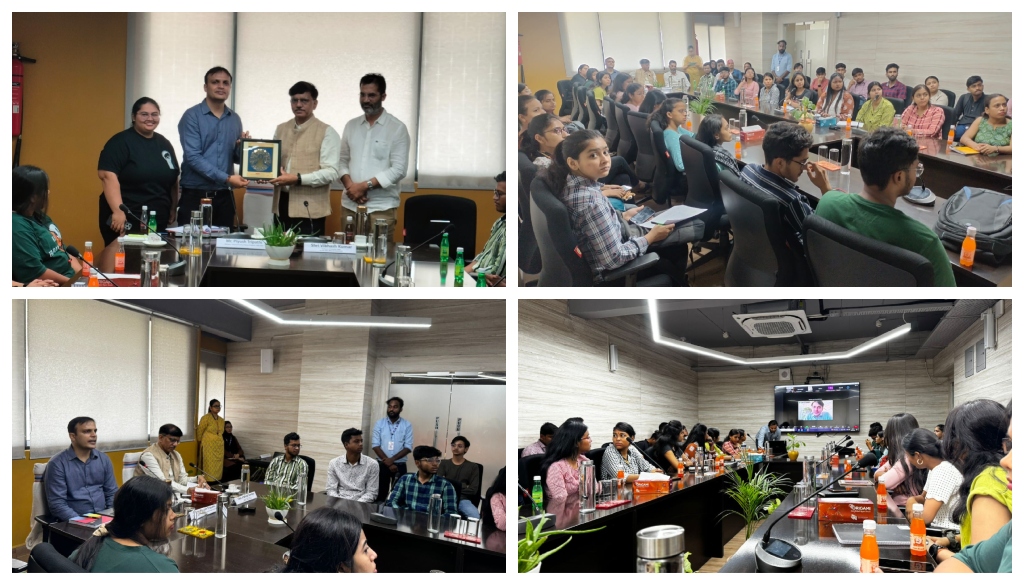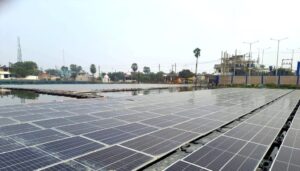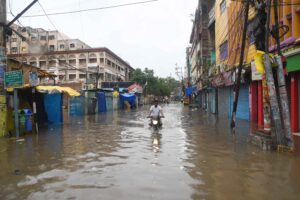World Environment Day: CIMP Hosts Session on Sustainable Solutions for Climate Change with WRI India

Patna: In a concerted effort to promote greener practices and a cleaner environment, the Chandragupt Institute of Management Patna (CIMP) hosted an engaging session titled “Innovative Solutions for a Sustainable Future: Addressing Climate Change and Environmental Challenges” in collaboration with the World Resources Institute (WRI), India. The event, held at BHUB, Maurya Lok, marked the occasion of World Environment Day and brought together experts and young minds to discuss pressing environmental issues.
The session was attended by startups and interns of BHUB. Esteemed speakers included Prof. Vibhash Kumar, Professor of Practice at CIMP; Mani Bhushan Jha, Program Manager, Climate Program, WRI India; and Piyush Tripathi, Manager – Communications, WRI India. They addressed crucial topics such as global warming, energy emissions, and climate change.
In his opening address, Tripathi, shed light on global warming trends in light of the scorching heat spell in most parts of the country. “According to the European Union’s Copernicus Climate Change Service (C3S), April 2024 was the warmest April globally, marking the eleventh consecutive month of shattered temperature records. The last 12 months were the hottest period ever recorded, with temperatures 1.58 degrees Celsius above pre-industrial averages. Additionally, eastern India experienced its hottest April on record,” he said.
Suggesting strategies for start-ups to reduce their carbon footprint, Tripathi said, “Start-ups can invest in solar, wind, or other renewable energy sources for operations, opt for sustainable supply chains and eco-friendly materials, and use smart technologies for lighting, heating, and cooling in their offices.”
Mani Bhushan Jha, who joined the session virtually, discussed innovative solutions to environmental challenges. He encouraged the youth to innovate, sharing ideas such as developing affordable rice mills and solar-powered refrigerators to combat global warming. Jha also underscored the importance of tracking tree survival rates to aid state reforestation efforts. “With Bihar’s limited forest cover, the state government is planting over 2 crore trees around the state annually. However, tracking their survival rate is challenging. A startup that could monitor tree survival would greatly benefit the startup, the government and the environment,” Jha suggested.
Jha also addressed Bihar’s rising electricity consumption. “Currently, Bihar’s electricity consumption is low at 300 kWh per year compared to the national average of 1200 kWh, but it is increasing daily. The trend of AC sales is rising fourfold, which will lead to an 8-16% increase in electricity consumption between 2020 and 2070. There is significant potential for business ventures in the energy conservation sector,” he explained.
Prof. Vibhash Kumar focused on challenges related to safe drinking water and water conservation. “India contributes 4% of the world’s fresh drinking water, yet much of it is polluted. Access to safe drinking water will be a major challenge in Bihar in the coming years. Start-ups working on reusing fresh water have immense scope. There is potential for business growth around agriculture, water conservation,” Kumar noted. He emphasized the support available from institutions like the Department of Industries, Government of Bihar, CIMP-BIIF, and BHUB.
The event concluded with practical steps shared by Tripathi that the youth can take to protect the environment, such as avoiding single-use plastics, promoting cycling and walking, and using cloth bags for shopping.





